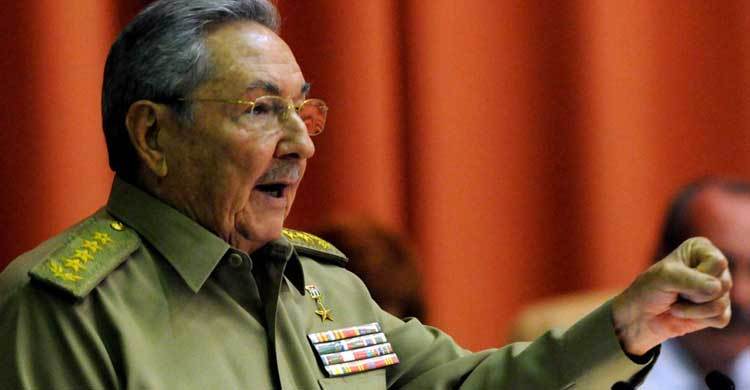Venezuela’s crisis hurting Island economy: Raul Castro

President Raul Castro acknowledged on Friday that the crisis in Venezuela, Cuba’s key ally and main trade partner, is having a negative spillover effect on the island`s economy, days after officials began ordering energy-saving measures for the coming months.
According to a transcript of Castro’s speech to members of parliament posted by the official website Cuba debate, the Cuban leader said the economy grew just 1 percent in the first part of the year, half of what the government had planned for, The New York Times reports.
The economic performance was ‘conditioned by the intensification of external financial restrictions caused by the failure to meet (targets for) export earnings, together with the limitations faced by some of our principal commercial partners due to the fall in oil prices,’ Castro said.
‘To that you add a certain contraction in the fuel supplies agreed upon with Venezuela, despite the firm will of (Venezuelan) President Nicolas Maduro and his government to fulfill them,’ Castro added.
‘Logically that has caused additional tensions in the functioning of the Cuban economy.’
Venezuela, which relies heavily on oil-export income, has been rocked by a deepening political and economic crisis with shortages of basic goods and rampant inflation.
Although Castro mentioned the crisis in general terms in December, it was the first time he referred to it specifically or said that Cuba is getting less fuel from the South American nation under preferential terms hammered out over a decade ago by then-presidents Fidel Castro and Hugo Chavez.
Venezuela has been sending Cuba a little under 100,000 barrels a day, accounting for about half the island`s energy needs. Castro did not give figures on how much less Cuba is now getting, nor did he specify whether the hit was to fuel that the island consumes or extra volumes on top of what the agreement calls for.
Cuba also says its economy is hurt by the U.S. embargo on the island, despite a diplomatic thaw between Havana and Washington in the last year and a half and measures by the Obama administration to ease some of its restrictions.
International media were not allowed access to Friday’s plenary session in a Havana convention center, one of the National Assembly`s twice-annual gatherings.
Cuban officials warned this week that the falling prices of exports and other economic problems mean Cuba is short of cash and needs to adopt power- and fuel-saving measures in the second half of 2016. So far those measures have included reduced bus services for workers, cutting back on air conditioning at public offices, reduced work days at some state buildings and slashing fuel allotments for government vehicles by half.
Cuba debate reported earlier that vice president and economic czar Marino Murillo said the energy restrictions aim to reduce electricity consumption by 6 percent without affecting residential supply, which is responsible for about 60 percent of power consumption. Vital services and key revenue-generating sectors such as tourism, nickel production and other prioritized areas will not see cuts.
‘We are going to face limitations in the second semester,’ Murillo was quoted as saying.
The 506-member National Assembly also approved an economic roadmap for the coming years that was produced by a Communist Party congress in the spring, although there were no new economic reforms announced. Under Raul Castro, Cuba has made reforms allowing a smattering of private-sector activity, although the state still controls crucial areas of the economy.
Cuba’s is not a professional parliament. Instead, members keep their normal jobs and gather twice a year to approve laws.
Also Friday, a government notice published in Communist Party newspaper Granma said Abel Prieto, a well-known writer, professor and intellectual, has been reappointed as the country’s minister of culture.
Prieto held the same post from 1997 until 2012, when he was replaced and named a special adviser to the president and the Council of State. He replaces current Culture Minister Julian Gonzalez Toledo.


